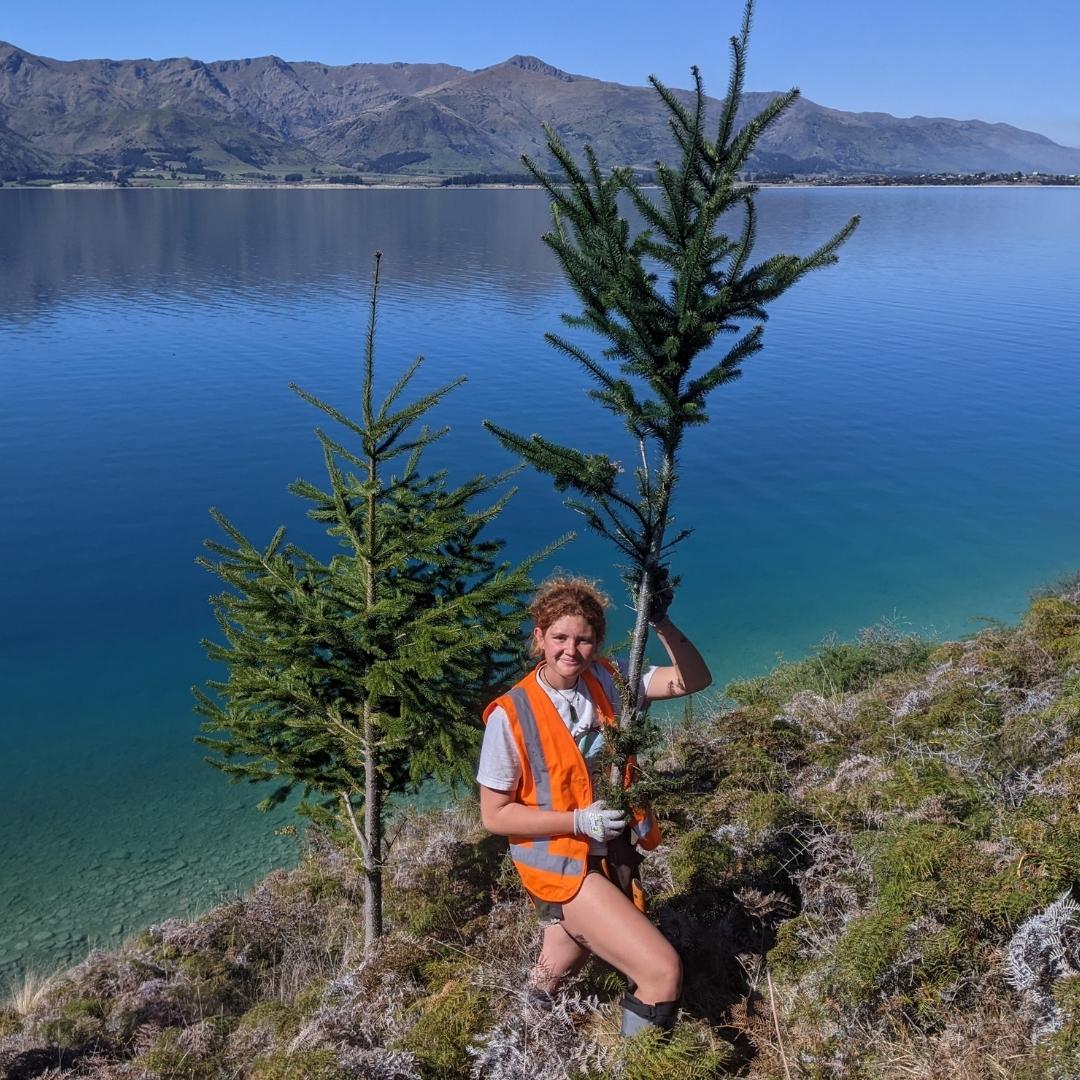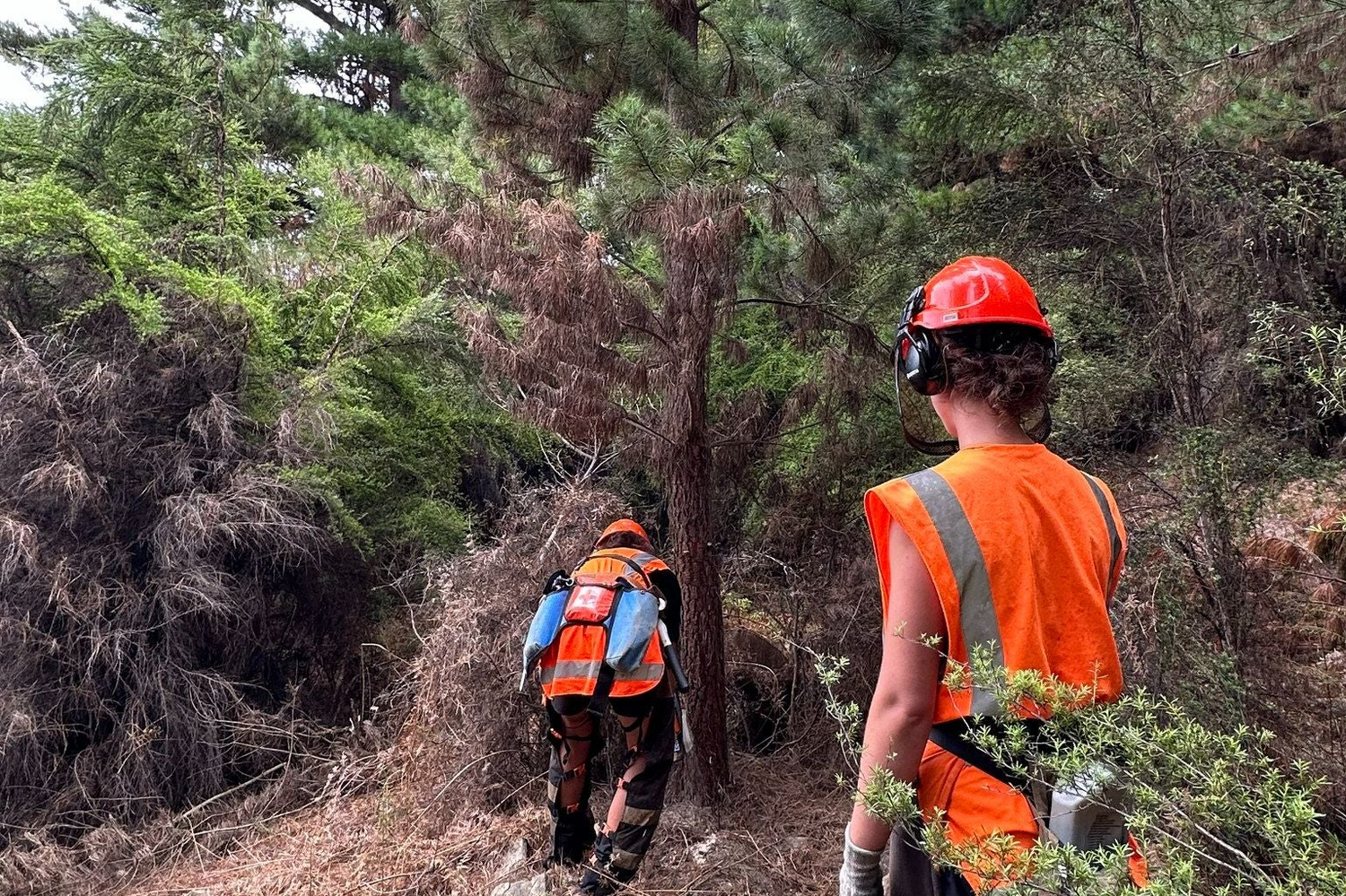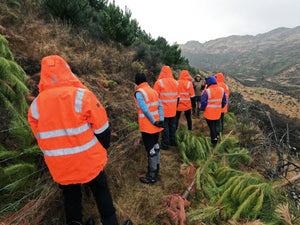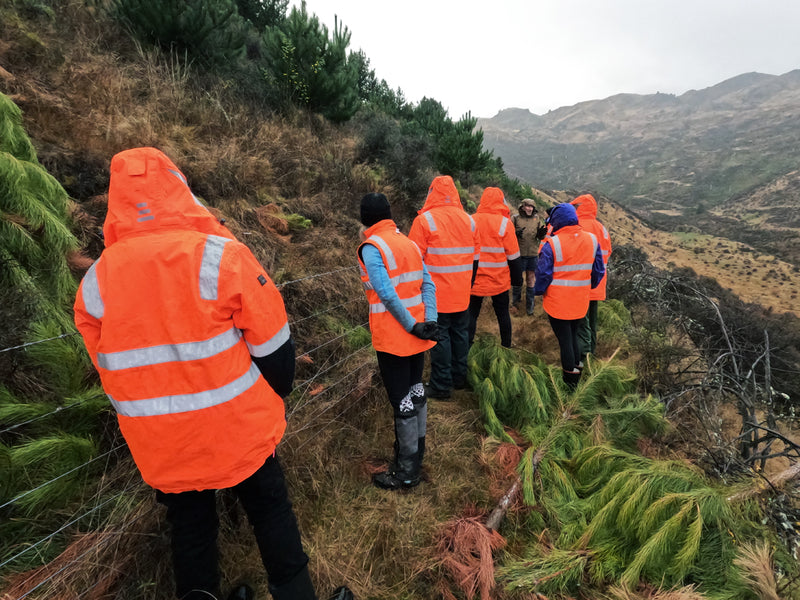How we control wilding tree spread
All trees are GPS marked prior to removal and added to the National Mapping Programme – this historical mapping of trees helps to shape the priority of future control work

Cut Stump Ground Control
Cut stump is a control method that involves cutting a tree down and applying herbicide to the cut stump to prevent regrowth. It is suitable for the control of trees which are accessible from the ground and where the risk of damage to surrounding vegetation is minimal or not a concern.

Drill and Fill
Rather than cutting down large trees, it is often better to drill holes into a tree’s trunk and fill the holes with herbicide. This is a good option on difficult terrain where felling is unsafe.
ABBA
Aerial Basal Bark Application (Lancing or Wanding)
Aerial Basal Bark Application (Lancing or Wanding)
Lancing is a type of aerial spot spraying used to treat individual trees/noxious weeds by using “Basal Bark mixture” applied by hand using the helicopter as an operational platform to ‘Chemically Ringbark’ tree trunks via a lance in a manner that wets the complete circumference of the trunk or lower stems. Most trees controlled in this way are small, and the “chemical ringbark” action is applied directly to the stem only and not the whole foliage.
The release height above the tree is a matter of centimetres hence the overall herbicide use is more accurate and in considerably lower volumes than what most public perceive about aerial spraying. Spray drift from this product and application method is extremely low. A passenger crew person
inside the helicopter sits holding the “lance” and applies the herbicide as the helicopter is piloted in a hover directly over the plant.
The ABBA method is particularly useful for widely scattered trees, inaccessible or unsafe areas (such as steep slopes) and in sensitive areas where specific targeting of wilding conifers is required amongst desirable vegetation or public assets.
Dead trees are left standing until they naturally rot away. It is the most efficient way to control scattered wildings in difficult-access areas or within high-value vegetation.
Aerial
Foliar Spray Application: (Boom spraying)
Foliar Spray Application: (Boom spraying)
As a last resort in dense and inaccessible wilding stands,
helicopters are used to deliver herbicides known as Aerial Foliar Spray Application (AFSA).
AFSA is only used in ideal conditions to ensure the operation is precise and well away from waterways.
AFSA Boom Spraying is a cost-effective approach that treats large dense infestations. It is best used where there is minimal risk of damage to nearby vegetation. Over
time, the dead trees will decompose into the soil.


